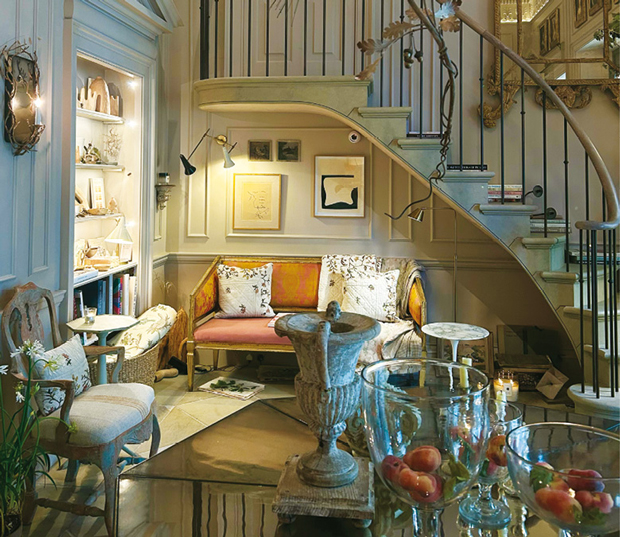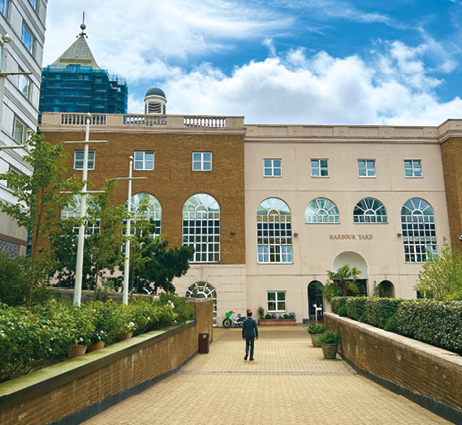FACILIO CAFM PLATFORM
Q3 introduced the Facilio CAFM platform as it delivers a more streamlined workflow and approval process. During our visit, the team discussed how the transition from relying on WhatsApp to this system allows for better data management and decision making. The tech provides detailed graphs and client portals for job requests and improving compliance tracking, it facilitates asset tagging which enables clients to scan and report issues directly. The system also integrates with SFG20 for up-to-date routines and has improved reactive maintenance, including LED light conversions and BMS management. Q3 now use Facilio reports for their monthly meetings to review compliance, jobs done, and compare data across financial years and previous years.
Additionally, clients have their own portals on Facilio, allowing them to request jobs directly by uploading pictures and descriptions. Then, in turn, engineers receive and complete jobs, averaging at about 300 a month, with records kept for future reference. The team explained that since these records help Q3 recognise when there is a recurring issue and then acknowledge whether full refurbishment instead of frequent repairs is more efficient, it saves them money and time in the long run.
Q3 were the first in the UK to adopt Facilio and they believe it has brought major benefits to them in terms of planning and deploying staff, while it is popular with clients, many of whom had never used such a system before – who appreciate the ease of reporting and ensuring maintenance issues are completed.
SUSTAINABILITY
The Q3 team ensures that sustainability is embedded into every area of service delivery at Chelsea Harbour. From product selection to resource use, the focus is on lowering environmental impact without compromising standards.
For example, the engineering contract includes waste management which has now been reorganised to prioritise recycling. This encompasses clear signage, tenant engagement around waste stream separation and more efficient bin store layouts. Previously small diesel tractors were used to collect waste from all the residential areas, these were eliminated by Q3 and replaced with an electric tug vehicle. All of the cleaning equipment is battery-powered and low energy consumption, reducing both noise levels and power use.
The cleaning team has transitioned to non-toxic, biodegradable cleaning agents, reducing chemical exposure indoors and lowering the ecological footprint. The waste and chemical usage of the estate is now also tracked in monthly reports, providing a chance to identify new opportunities to reduce environmental impact further.
Taking these steps has contributed to broader ESG targets across the estate where reducing the environmental footprint has improved efficiency and had a positive impact on the environment.
CHALLENGES OF THE CONTRACT
Delivering FM services at Chelsea Harbour is not without its challenges, Stuart Bellew explained that this includes having to expect the unexpected and remain reactive.
“You can plan a week thoroughly but with the diverse nature of the work it may all have to change by the time Monday morning comes around. Day-to-day demands are anything but routine and vary from maintaining marina lock gates and boardwalks to supporting high-profile design events, which demands adaptability.”
He adds that the need for continuous improvement and innovation all while maintaining high standards to ensure the diverse group of stakeholders all with different, evolving needs are pleased can also bring its difficulties.
COLLEGIATE CULTURE
In a complex and refined place such as Chelsea Harbour, where demands go beyond cleanliness or compliance, staff must embody discretion, courtesy, and adaptability. They are expected to operate seamlessly in both private and public spaces, surrounded by high-end design brands, luxury property, and an international client base. Q3’s people-first culture is what enables this level of service. By investing in recruitment, onboarding, and ongoing development, the company ensures the teams feel valued and important.
The partnership between Q3 and Chelsea Harbour stands out not just for its operational precision but for the culture and relationships that underpin it. There is a huge focus on forging strong, long-term relationships, which was evident from walking around the site. A people-first philosophy is embedded into the day-to-day culture on the site and is evidentially a reason for the contract’s ongoing success. Through fostering a culture of responsiveness and collaboration, the team has built a reputation for being a dependable partner. Q3 have fostered a ‘one team’ culture with Q3 staff, contractors, and the client’s personnel all working in harmony to achieve shared goals, open communication, and enhance the overall atmosphere of the site.
Because of the close atmosphere they have created here, staff retention is extremely high, and the contract continues to be extended. Speaking to different employees around the site it is evident that each of them take pride in contributing to an environment known for style, cleanliness and care. Paul O’Boyle, Operations Manager at Q3, explained to us just how much the relationship between Q3 and the client had changed for the better since they took over the contract, but also that between Q3 and all staff in general.
DELIVERING TANGIBLE BENEFITS
With the implementation of the flexible model, Q3 have delivered clear, measurable benefits:
- Streamlining operations by enhancing training and multi-skilling has enabled the team to maintain high standards with fewer staff.
- The integration of systems that provide instant access to compliance, environmental impact, and cost data, has supported proactive maintenance and informed decision-making.
- Reduced reliance on external contractors, saving around £250,000 per year.
- The strong and supportive relationship they have formed with Chelsea Harbour’s executive management has improved team morale, service delivery and visitor experience.
LOOKING AHEAD
The partnership between Q3 and Chelsea Harbour is built on shared commitment to continuous improvement. Q3 are continuing to implement further sustainability enhancements and are reviewing their carbon reporting tools to provide more granular data. They also intend to expand their training and development pathways, including service culture, stakeholder communication, and sustainability awareness.
Periodic service reviews to assess contract performance are being held regularly and there is a collaborative plan for improvements. Finally, taking a people-focused approach remains a top priority for the future, exploring ways to further align with the hospitality feel of Chelsea Harbour. These plans reflect a shared vision to maintain a forward-thinking, responsive, and high-performing estate.
CONCLUSION
 Q3’s partnership with Chelsea Harbour proves how a flexible approach to facilities management can be more than just simply keeping a luxury estate clean. It demonstrates a broader shift in how FM can create value by environmental leadership, flexible service design, and a workplace culture built around people, pride and precision. From frontline operatives to estate managers, the relationship is built on mutual respect, shared standards, and open communication. The people-first culture has created a stable, motivated team that takes genuine pride in the site, and in doing so has evolved the contract from a service to a partnership.
Q3’s partnership with Chelsea Harbour proves how a flexible approach to facilities management can be more than just simply keeping a luxury estate clean. It demonstrates a broader shift in how FM can create value by environmental leadership, flexible service design, and a workplace culture built around people, pride and precision. From frontline operatives to estate managers, the relationship is built on mutual respect, shared standards, and open communication. The people-first culture has created a stable, motivated team that takes genuine pride in the site, and in doing so has evolved the contract from a service to a partnership.






